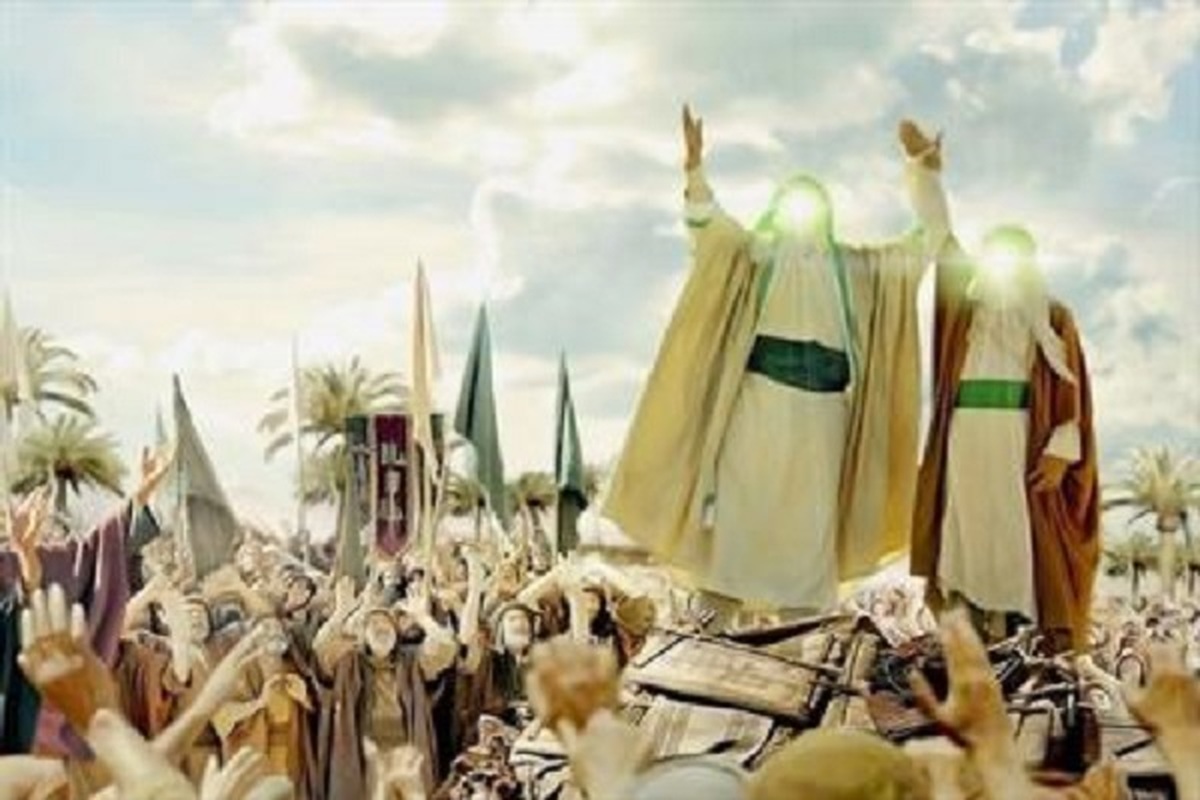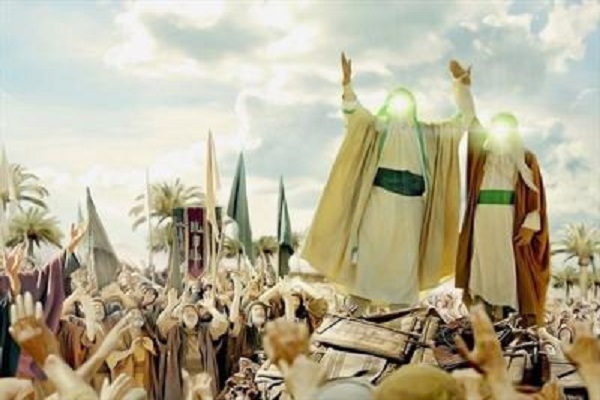What Was Last Major Message in Prophet’s Mission?


This message is in a verse, known as the Verse of Tabligh (propagation verse) is one of the last verses revealed to the Prophet (PBUH). It was revealed in the tenth year after Hijrah and is in Surah Al-Ma’idah.
While it had been expected that the Prophet (PBUH) would stay in Mecca for some time after his last Hajj trip, he told the pilgrims right after the Hajj pilgrimage that no one but the disabled should stay in Mecca. He said everyone should leave the holy city the next day so that all would be present at Ghadir Khumm at a certain time.
The next day, the flood of pilgrims, estimated at more than 120,000, left the city accompanying the Prophet (PBUH).
Ghadir Khumm is a place about 3 miles from Juhfa. On the way to Medina, the Prophet (PBUH) changed his route to Ghadir Khumm. Then he ordered all people to stop, those who had gone ahead to come back and those who were following behind to come forward. So all of them gathered in Ghadir Khumm. Then the Angel Jibril (Gabriel) came and read this verse: “O Messenger! Deliver what has been revealed to you from your Lord; and if you do it not, then you have not delivered His message, and Allah will protect you from the people; surely Allah will not guide the unbelieving people.” (Verse 67 of Surah Al-Ma’idah)
That the verse says “God will protect you” is a sign of the Prophet’s (PBUH) concern about conveying the message. He did not worry about his own life because he had not allowed fear to enter his heart during all the years of fighting idolatry in Mecca and in the battles with infidels. Now, in the last months of his life and in the gathering of Muslims, why should he worry about delivering a message?
The phrase “O Messenger” shows that what matters now is the issue of Risalah (conveying message). The Arabic word Balligh, used instead of Obligh, means: deliver the message with power and grandeur.
And the phrases “Maa Unzila (what has been revealed)” and “Min Rabbik (from your Lord” signify the fact that the issue is not from the Prophet (PBUH) but a message from God.
These instances of emphasis, along with the pledge that God will protect the Prophet (PBUH), show that perhaps the Prophet (PBUH) was worried that people would think that he had made a commandment on his own and that it did not come from God.
The phrase “if you do it not, then you have not delivered His message” is very serious. It means this message is as important as all the messages the Prophet (PBUH) conveyed during his prophethood and if it is not delivered to people, it would be as if all of other messages disappear. The verse does not say “your mission” will fail, but it talks about God’s Risalah, which means if this message is not delivered, the Risalah of God has not been acted upon.
It all shows that the content of the message should be very significant and substantial.
Another point is that this message cannot be about monotheism, prophethood and resurrection because there is no need for so much emphasis on these issues in the last months of the Prophet’s (PBUH) life. So what is the content of this important message?
According to hundreds of Hadiths, whose number reaches Tawatur (substantiating its authenticity), at Ghadir Khumm, the Prophet (PBUH) stood on pulpit of camels' saddles among people and delivered a long sermon. What he said for the first time was about his imminent demise and asked what Muslims thought of him. All acknowledged his greatness, Karamah (dignity) and fulfilment of his mission. After making sure all the crowd hears him, he delivered his significant message regarding the future, saying, “Anyone whom I am his Wali, Ali (AS) is his Wali,” thus clearly declaring the Wilayat of Imam Ali (AS).
These Hadiths show that the Prophet (PBUH) was worried people would reproach him for appointing his cousin and son-in-law to this position.
Read More:
Of course, after the demise of the Holy Prophet (PBUH) when Hazrat Zahra (SA) would go to the door of the people and ask them “Were you not there and did you not hear what the messenger of God (PBUH) said in Ghadir Khumm?” They would say: “At Ghadir Khumm, we were at a long distance and could not hear what the Prophet (PBUH) said.”
Translated by Seyed Hossein Beheshti Shakib


